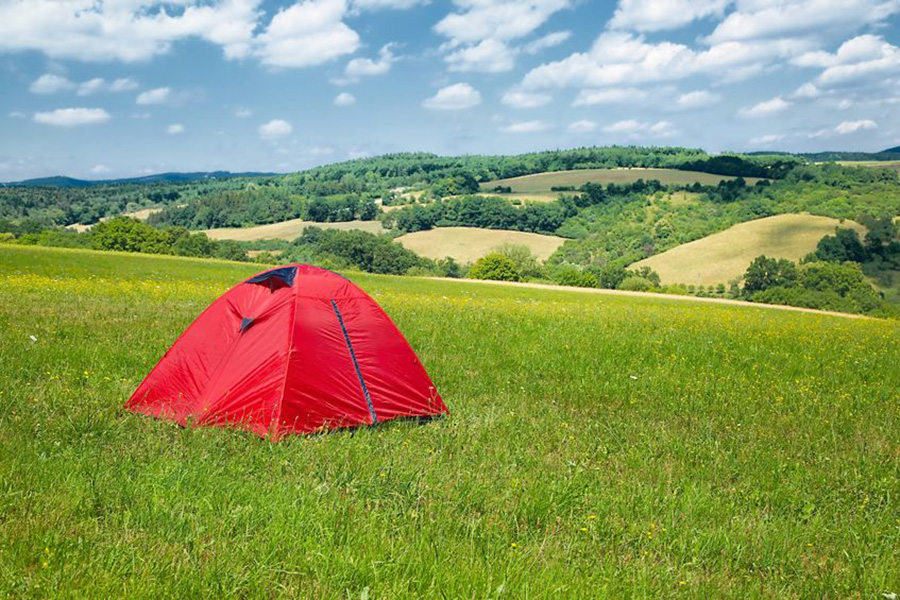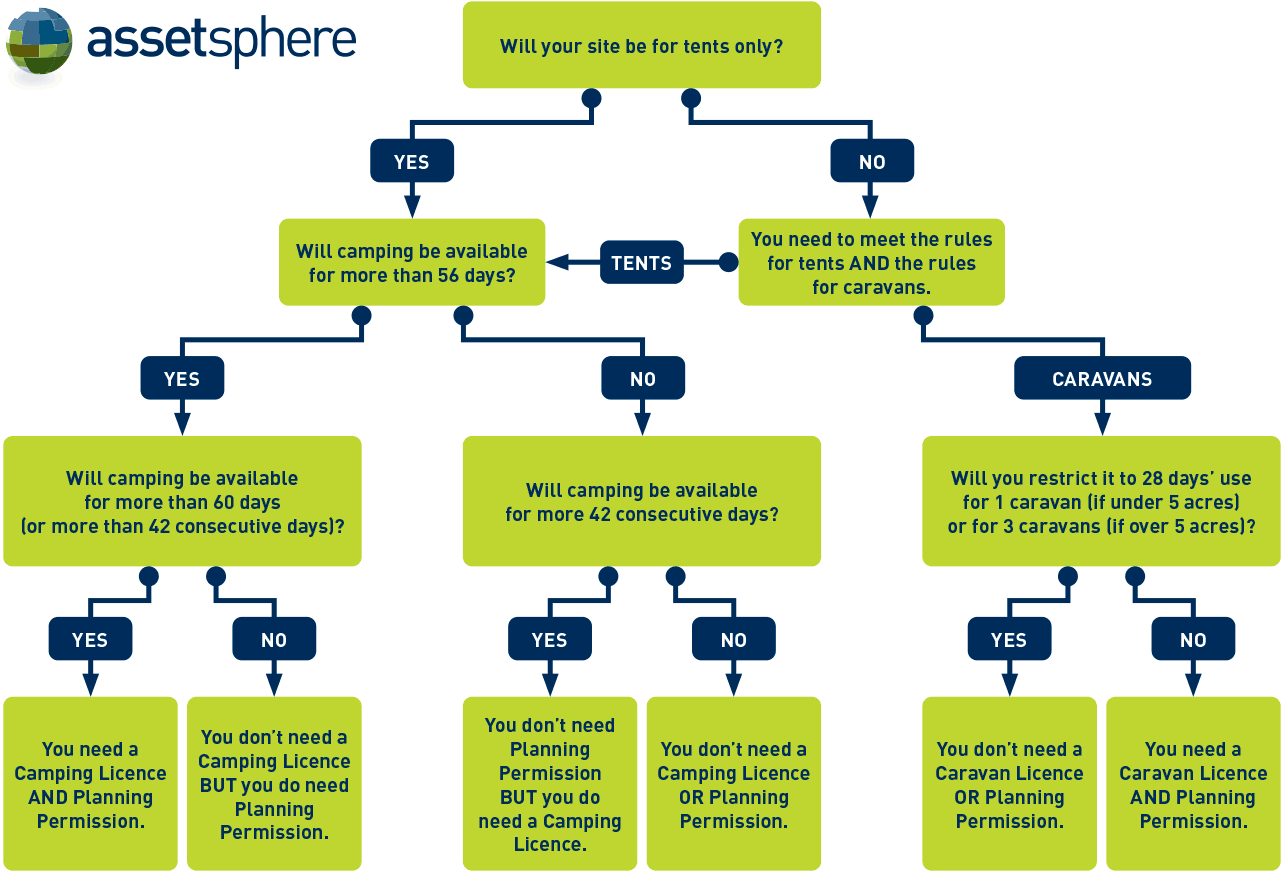28-day rule? More like 56! Farmers and landowners can generate additional income from temporary campsites and glamping sites this summer… but beware, there are strings attached!
In a bid to rejuvenate the tourism industry, the government has allowed a temporary doubling of the timeframe within which landowners can utilise existing permitted development rights to take what is normally classed as agricultural land and put it to a different use.
This doubling from 28 days to 56 was brought in on on 31 December 2020 and ends on 31 December 2021, so the window of opportunity is a relatively small one.
Permitted development rights avoid the need for full planning permission to set up things such as a short-term campsite. The specific legislation is known as the 28-day (now 56-day) tent camping rights.
Additionally, the VAT rate has been reduced from 20% to 5% for certain tourism activities until 30 September 2021. It then rises to 12.5% until March 2022 and back to 20% in April 2022. However, various countryside and tourism groups are pushing for the change to be made permanent to boost the UK tourism industry.
All of this presents a great opportunity for landowners who are quick enough – and have spare land and a bit of imagination – to generate a extra income this summer.
As a rough guide, new sites on the camping-pitch marketplace PitchUp made an average profit of £12,500 last summer at roughly £400–£500 per pitch per month.
Don’t trip up! Ten top points to consider
The challenge is the plethora of red tape and legislation that you must adhere to.
On a recent webinar, representatives from the Countryside Landowners Association (CLA) and PitchUp spoke about the things you should consider before setting up your teepees and renting Portaloos.
Here are ten of the most important points:
- The new 56-day rule is only applicable to campsites, not caravan sites – and it only applies in England.
- While campsites can now be open for more days without planning permission, a licence may still be required if you plan on being operational for more than 42 consecutive days. However, due to a clause stating that no license is required for up to 60 non-consecutive days, landowners could make use of a gap to avoid the 42 consecutive days. (The land is supposed to be put back to its original state during this gap, meaning this may only be viable for people with easily moveable equipment.)
- Some landowners have utilised the 56-day period on different parcels of land. Usually, land under the same ownership is deemed to be a single planning unit restricted to a single 56-day period. However, some ownerships consist of multiple planning units (such are where the parcel is broken up by separate land; the land is registered for alternative uses such as a tourist attraction or event; or a single estate covers a large area).
- You must check you haven’t waived your permitted development rights (Section 106 Agreement) with your local council in a previous planning application.
- During the off-season, campsite equipment must not be stored in a barn registered for agricultural use. It must be stored in a responsible location to avoid breaching agricultural-use laws.
- The land you intend to use must not be not near listed buildings and important scientific or historical sites. And if the land is situated in AONB, it may also make the case for a campsite harder.
- If you claim BPS grants from the land intended for use as a campsite, DEFRA still only allows 28 days of changed use on the agricultural land. Therefore, a cost analysis is key. Will the income from the campsite outweigh the BPS grant you would otherwise receive?
- Insurers must be notified of any change of use.
- Public footpaths can be a both a hinderance and a blessing. You must consider any nearby PRoW and be willing to provide permissive paths with adequate signage and furniture where necessary.
- If you need to lay a concrete base (e.g. to securely site those Portaloos) or build specific structures, these may require planning permission.
Help is at hand!
Below is a useful diagram showing what legislation you may need to account for depending on what you would like to put in place.


